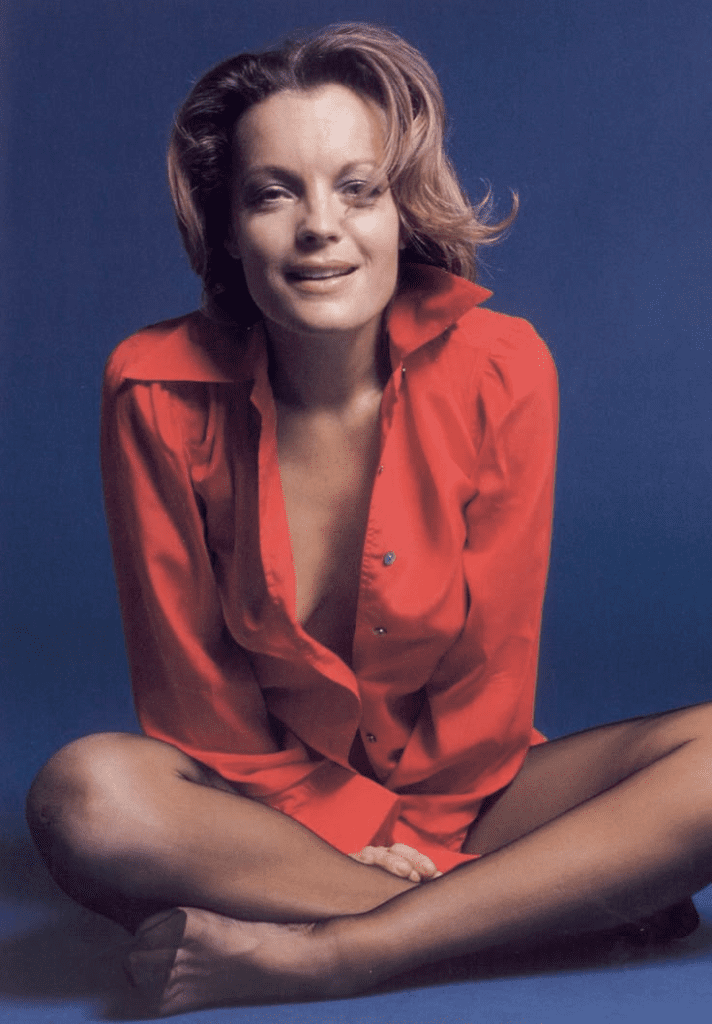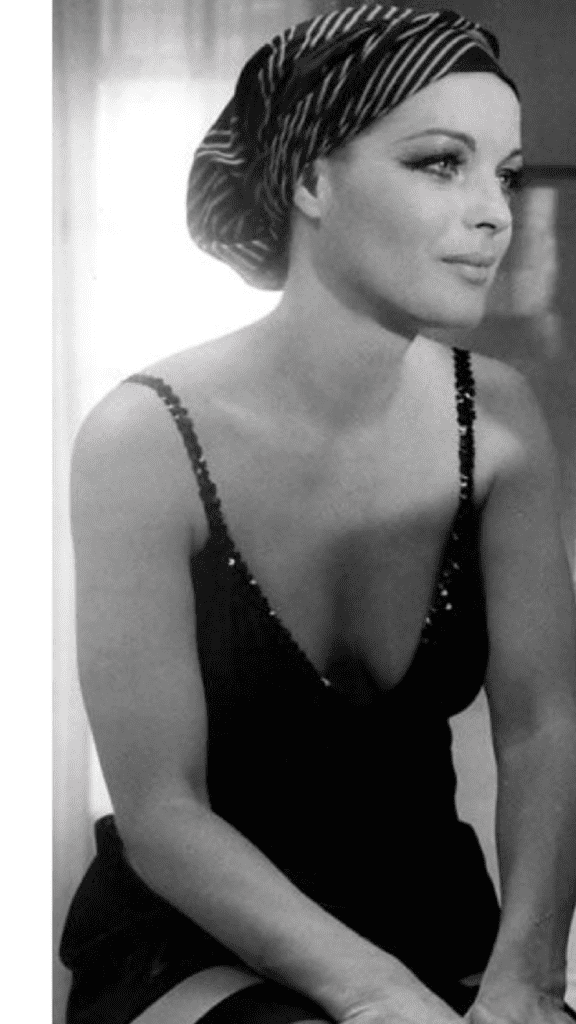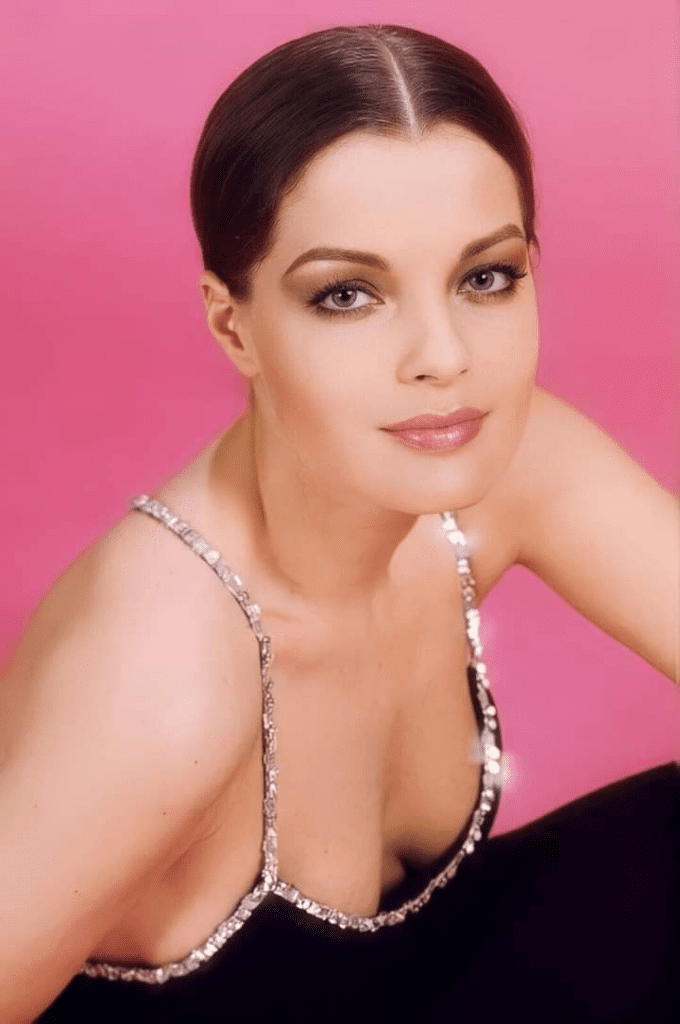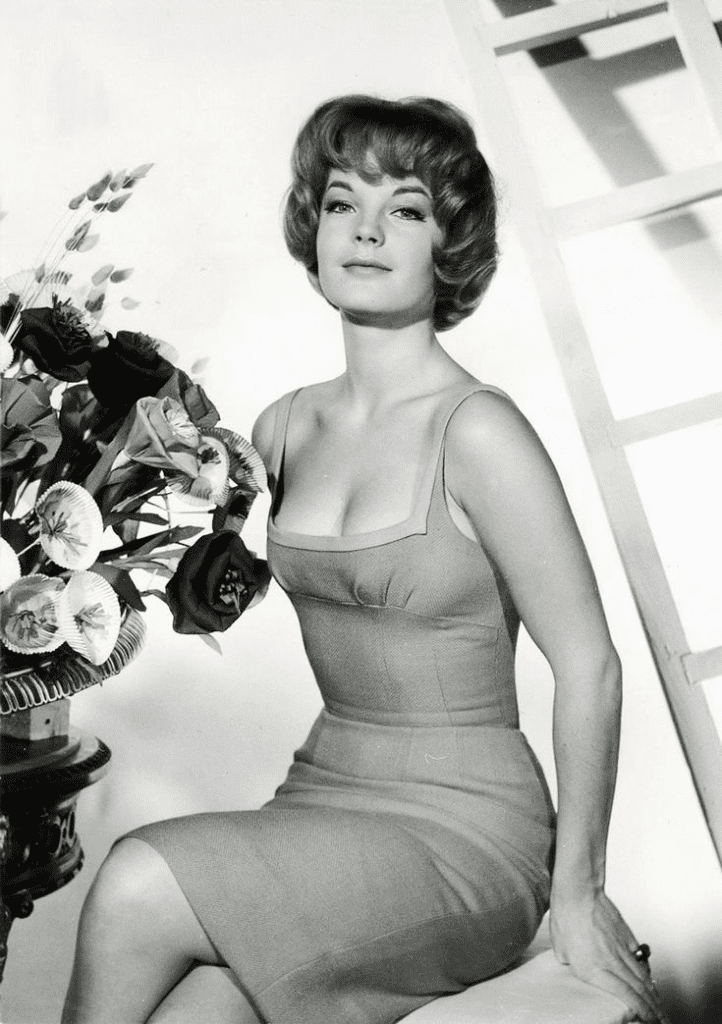The Aura of Elegance
There are stars, and then there are those rare souls whose presence feels like cinema itself—Romy Schneider was one of those. She didn’t just appear on screen; she existed in a way that made every movement magnetic. Her beauty wasn’t loud or showy—it was nuanced. A glance, a tilt of her head, a whisper of melancholy in her smile… that was enough to leave audiences breathless.

Born in Austria but eternally draped in the mystique of French cinema, Romy wasn’t just a pretty face. She embodied a kind of complex femininity—graceful yet fierce, ethereal yet emotionally grounded. But behind all that glamour, her life was shaped by heartache, personal battles, and a string of devastating losses.

Rising to Stardom: From Princess to Powerhouse
Romy Schneider first burst into the spotlight in the 1950s with her role as Empress Elisabeth of Austria in the Sissi trilogy. The role made her a sensation across Europe—young, fresh-faced, and utterly charming. But for Romy, playing Sissi quickly became a gilded cage. She hated being seen as just a porcelain doll trapped in period dresses.

Yearning for artistic growth, Romy made the bold move to leave Germany for France. There, she reinvented herself and dove into deeper, more complex roles that allowed her to express the full range of her talent. It was in France that she truly came into her own, working with legendary directors like Luchino Visconti and Claude Sautet, and becoming a muse for an entire generation of filmmakers.
Video : Romy Schneider 1938 -1982 Austrian Actress from Vienna- International Actress mostly in France. ❤
The Love That Changed Everything
While filming Christine in 1958, Romy met French heartthrob Alain Delon. Their chemistry was undeniable—both on screen and off. Their romance became the stuff of tabloid legend: young, glamorous, impossibly beautiful. But it was also volatile and destined to fall apart. When Delon left her without warning, it shattered Romy.

Still, she carried that heartbreak with surprising grace, and in later interviews, she often referred to Delon as her great love. Despite the split, they remained close friends for the rest of her life. Their connection—passionate, painful, and poetic—felt like something straight out of the movies.

The Roles That Redefined Her
As she distanced herself from her early ingénue image, Romy delivered performance after performance that critics couldn’t ignore. In The Things of Life (Les Choses de la Vie) and The Important Thing Is to Love, she revealed a new level of emotional depth—raw, real, and deeply human.

She was fearless in her roles, often portraying women who were complex and emotionally torn. Unlike the shallow caricatures of beauty often offered to actresses, Romy demanded more. She didn’t just play a woman—she became her. There was vulnerability in her eyes, strength in her voice, and a kind of haunted wisdom in her delivery.

A Life Shadowed by Loss
Despite her success on screen, Romy’s personal life was riddled with heartbreak. Her marriage to actor Harry Meyen was turbulent and eventually ended in divorce. She lost her ex-husband to suicide. But perhaps the most crushing blow came in 1981, when her 14-year-old son, David, died in a freak accident after impaling himself while trying to climb a gate. The grief nearly consumed her.

Friends and colleagues described her as never quite the same after that tragedy. She kept working, yes—but the spark in her eyes dimmed. She battled depression, and her health began to deteriorate.
Video : Romy Schneider – Interview “Le petit Carrousel illustré” (24.11.1970)
Her Sudden, Mysterious Death
In May 1982, Romy Schneider was found dead in her Paris apartment at just 43 years old. Officially, her death was labeled a heart attack. Some speculated it was an accidental overdose or even suicide, but no foul play was found. Whatever the cause, the world lost a legend far too soon.

Her death sent shockwaves across Europe. People mourned not just a great actress, but a woman who had been honest in her fragility, brave in her choices, and captivating in every sense.
Her Lasting Legacy
Today, Romy Schneider is remembered as one of the greatest European actresses of the 20th century. She left behind a body of work that still resonates—films that show the many shades of love, pain, strength, and vulnerability.

Her legacy isn’t just about beauty or tragedy—it’s about truth. Romy lived out loud, loved deeply, and gave herself fully to her art. Her performances still hold up because they were rooted in reality. There was no artifice, no mask. Just Romy.

Conclusion: More Than a Pretty Face
Romy Schneider wasn’t just another silver-screen siren. She was a force—elegant, emotional, and unafraid to bleed on camera. Her beauty may have drawn the spotlight, but it was her depth, her honesty, and her resilience that made her unforgettable.

She reminded us that even those who seem to have it all can carry immense pain—and yet still choose to keep giving beauty to the world. That’s not just acting. That’s courage.